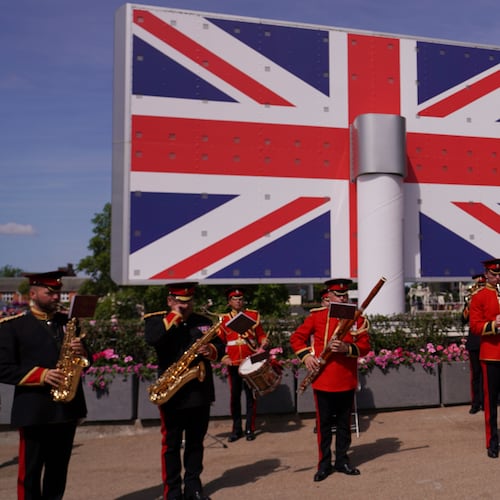"I would much rather our money go to defense instead of art or school music. I feel much safer battling our enemy with F-22 Raptors and war ships than using Whistler's mother or a tuba." — AJC Vent
"The F-22 is beautiful, but it's not a justification for getting rid of other art." — AJC Vent
This year we watched the General Assembly debate funding for the arts, while the Georgia Humanities Council itself contended with the possibility of losing all of its state funding (it did not) as our legislators attempted to come to grips with a downward revenue spiral.
Nationally, funding of the F-22 Raptor (built in Marietta) was debated in the U.S. Congress as the federal government confronted its own national defense priorities in a worsening economic climate.
Naturally, with the economic situation bleak, people may feel compelled to choose sides, and especially so at a time when the nation may also feel threatened.
Understandably, politicians and citizens are looking for ways to reduce spending, but does it make sense to forfeit all the rewards of the arts and humanities? What is it, exactly, that Georgia is getting from these cultural investments?
The humanities comprise all the stories and subjects that bring meaning to what it is to be a human being, living in a world of wonder, struggle and mystery. Literature and languages are an expression of mankind’s history, its struggles and triumphs, and therefore must be cherished in our schools and lifted up in our state.
History honors the memory of those who have brought us to this point in time and at its best, demands that we confront the truth.
The humanities also include the preservation of historic houses, structures and historic sites that dot our landscape and are reminders that the world did not begin the day we were born. Public funding and support help ensure that such historic treasures are preserved and interpreted, not torn down, plowed under, or otherwise erased from memory.
Documentary records, archives, and collections in our universities, museums and state archives are silent witnesses waiting to be brought to life by ordinary citizens as well as scholars. These deserve conservation and preservation, for in these protected papers our stories as a people live.
Our journey from the past is also told in the implements and artifacts uncovered by archaeology that illuminate the experience of those who came before and laid down the foundation for us, struggling and thriving, only guessing at what the future would hold, just as we are now.
The arts, which include painting, poetry, drama, performance, literature and music, are kin to the humanities in that both seek to explore and enhance the quality of our lives and give meaning and beauty, enlightenment and connection. Together, these make up our culture and feed our left and right brains.
There was a time, probably in my father’s day (he grew up in Appalachia during the Great Depression), when the importance of humankind’s collected wisdom and stories were implicitly understood by just about everybody in the United States, whether or not one was literate.
Wisdom was sought in the sages and philosophers of the past — in the oral histories and songs of their ancestors. The preservation and cultivation of the knowledge that had come before us was not just about passing on farming, hunting, building or bartering skills, but about what defined us as a people, who our ancestors are, and what had helped us to build healthy civilizations that thrived and what had contributed to the destruction or decline of our social orders.
This accumulated knowledge was something to be proud of — it was a collection of lessons to learn from and build on.
Yes, the past can and does include pieces we are ashamed of, but when we take ownership of where we erred and when we commit to do better, we can then find value in the past that preserves these valuable lessons and guides us, inspiring us to not make the same mistakes.
Knowledge and heritage gained through generation after generation is not something to be regarded casually, except at our own peril of losing much of value that helps us to improve the quality of the whole human community.
How do we weigh the value of this “investment” in culture? When Prime Minister Winston Churchill’s finance minister proposed drastic reductions in cultural spending during World War II because of the war’s costs, Churchill famously replied, “Then what are we fighting for?”
I’m not sure it is always helpful to oppose public funding of culture with national defense, tubas with F-22s. My father, a U.S. veteran of three wars, carefully packed his books as he moved from one duty assignment to another. I think he would have agreed with Churchill: We need them both.
Jamil S. Zainaldin is president of the Georgia Humanities Council.
About the Author
Keep Reading
The Latest
Featured

